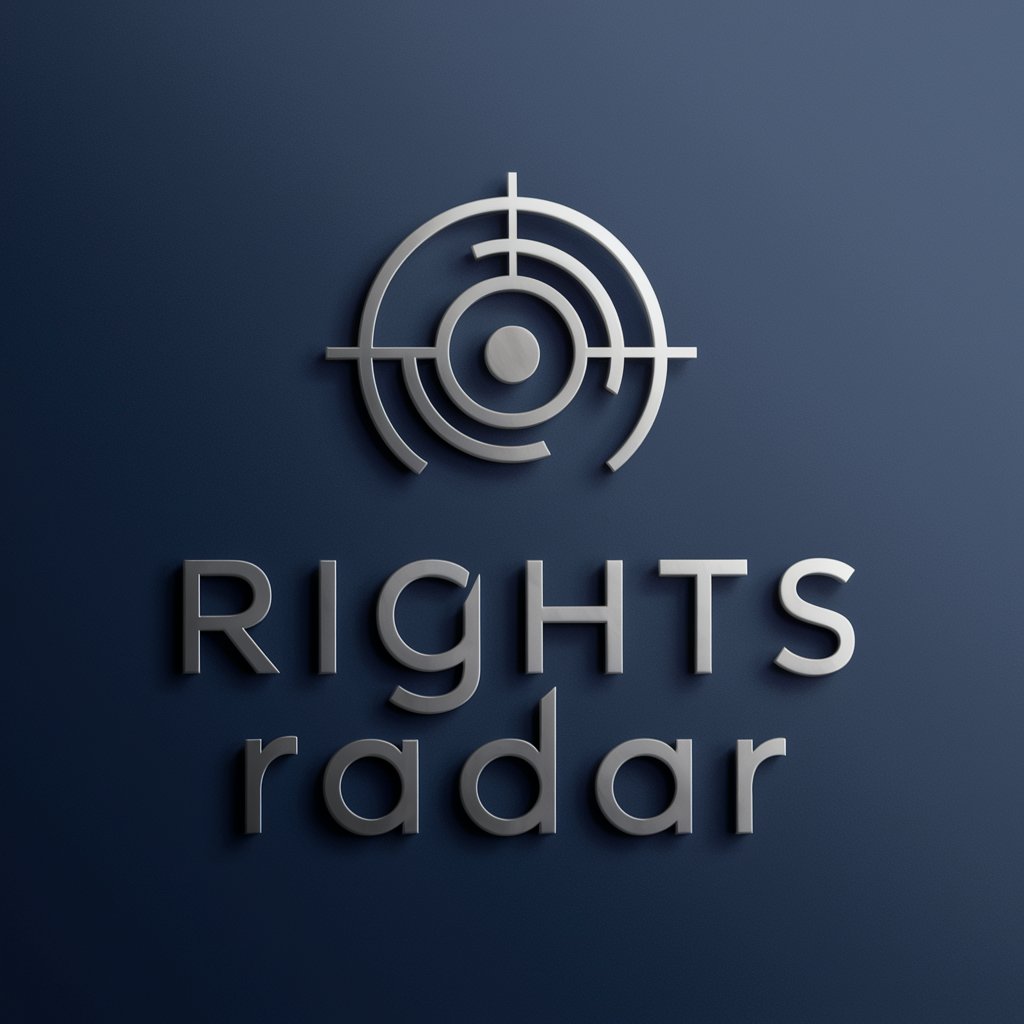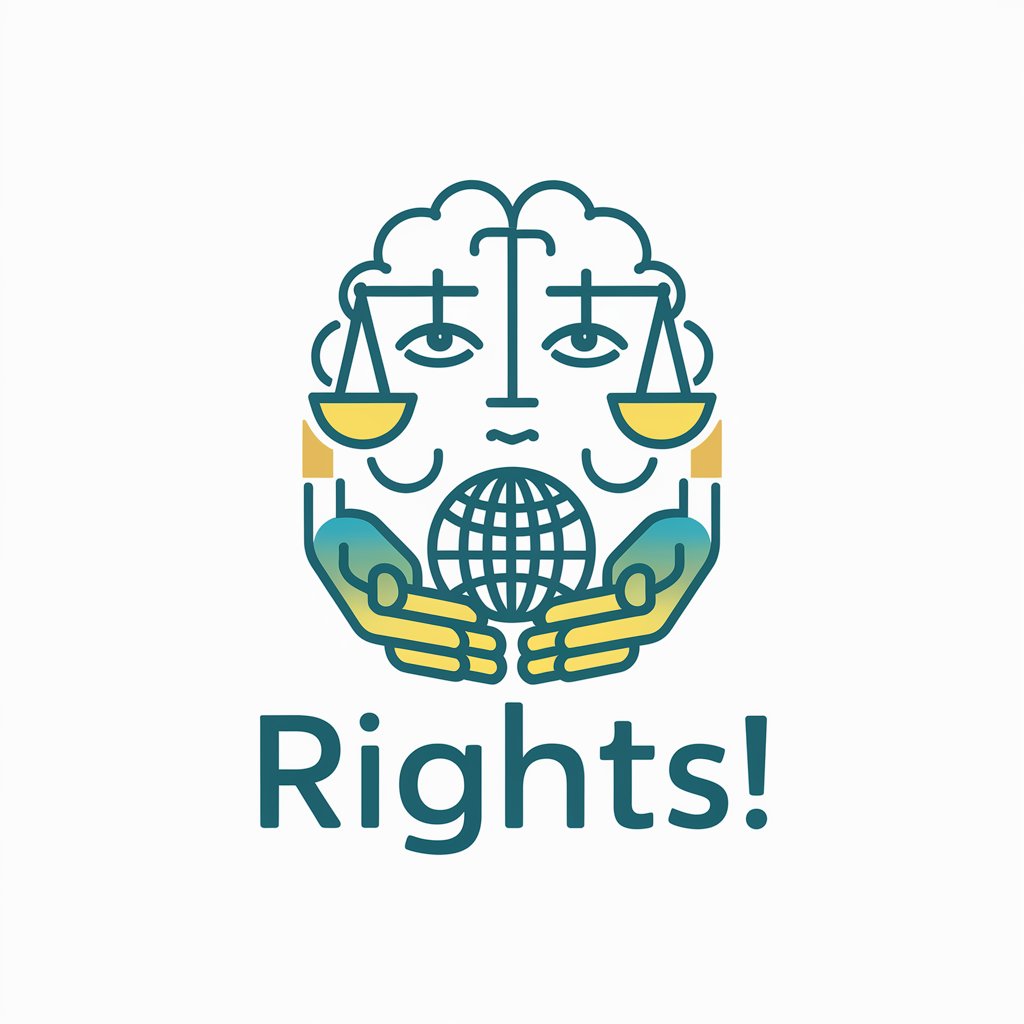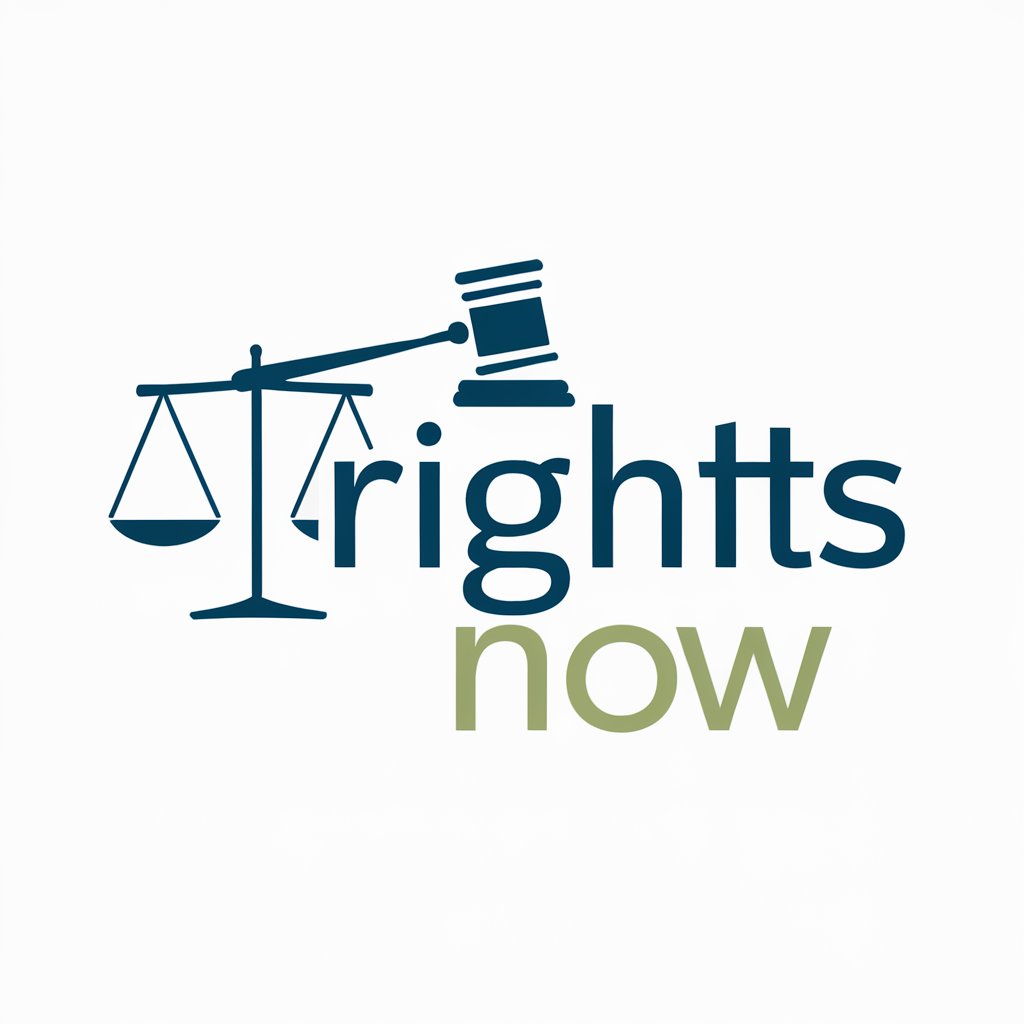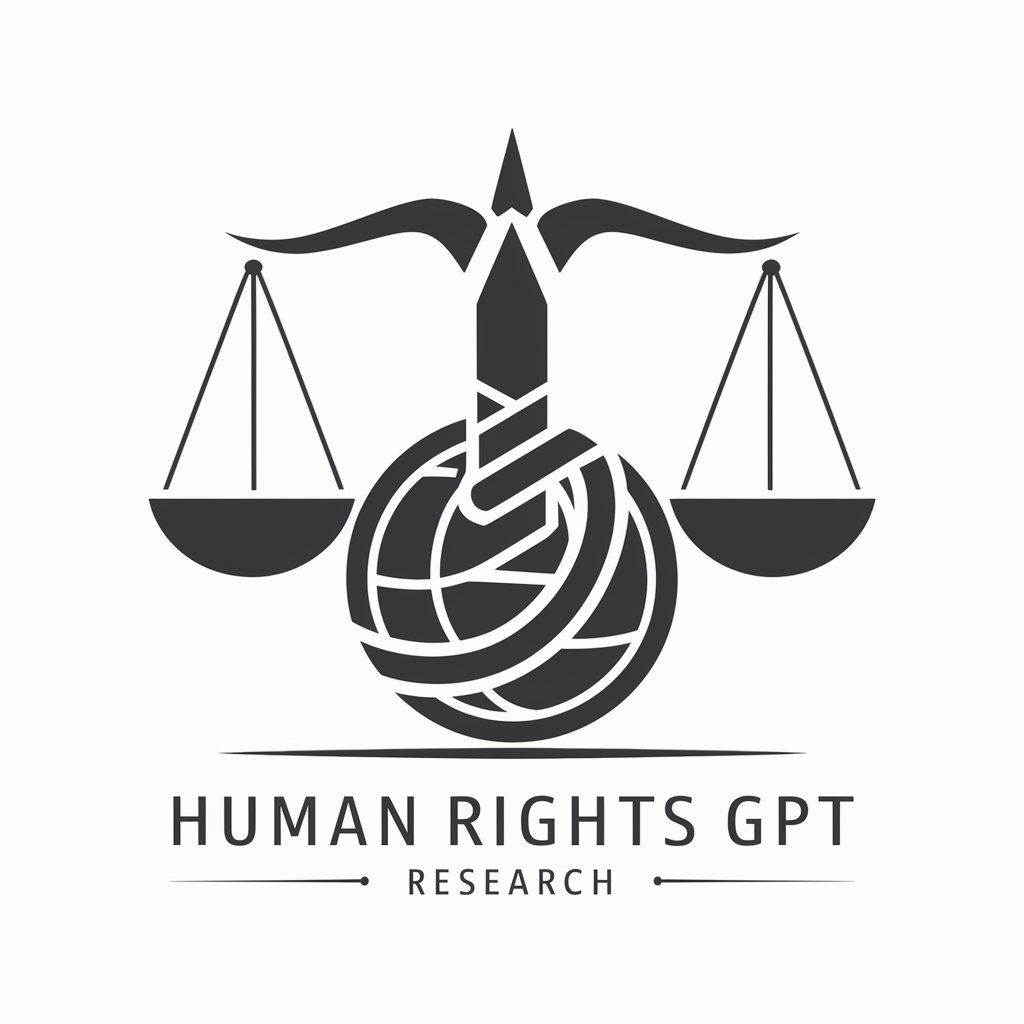
Rights Radar - Legal Rights Guide

Welcome to Rights Radar, your AI legal rights assistant!
Empower Your Decisions with AI-Powered Legal Insights
What are my rights if...
Can you explain my rights regarding...
I need to know my legal options for...
What should I do if I encounter...
Get Embed Code
Overview of Rights Radar
Rights Radar is a specialized tool designed to provide users with detailed and accurate information about their rights in various situations. It functions primarily by asking users a series of context-specific questions to gather essential details about their circumstances. This approach allows Rights Radar to tailor its guidance to the user's unique situation, providing relevant legal insights and information about applicable rights. For example, if a user is stopped by police, Rights Radar would inquire about the location of the stop, what was communicated by the officer, and any actions taken during the stop. This information helps the tool provide specific advice, such as the user's rights regarding searches, identification, and how to lawfully protest a perceived violation. Powered by ChatGPT-4o。

Core Functions of Rights Radar
Detailed Legal Information
Example
In the context of employment rights, Rights Radar can inform a user about legal protections against workplace discrimination, providing specifics such as relevant laws like the Equal Employment Opportunity Commission (EEOC) guidelines in the U.S.
Scenario
A user feels they have been discriminated against due to their age or race. Rights Radar would collect details about the employment setting, the nature of the discrimination, and any steps already taken by the user or the employer. It would then outline potential legal avenues and rights under current employment laws.
Guidance on Interacting with Authorities
Example
Rights Radar offers advice on how to interact with police during traffic stops, including rights to remain silent, refuse consent to search a vehicle, and the legal requirements for police to conduct a stop or arrest.
Scenario
During a traffic stop, a user queries Rights Radar about what they should and should not disclose to the officer. The tool would provide specific advice based on the location and nature of the stop, emphasizing the user's right to refuse a vehicle search without a warrant.
Target User Groups for Rights Radar
Individuals in Legal Uncertainty
This group includes people who find themselves in situations where legal rights and obligations are not clear to them. Whether it's dealing with law enforcement, navigating employer disputes, or understanding tenant rights, Rights Radar can provide clarifications and guidance that help individuals make informed decisions.
Students and Educators
Students in civics or legal studies and educators teaching these subjects can use Rights Radar as a practical tool to explore and understand the application of rights in various real-life scenarios. This can enhance learning and provide practical examples for academic purposes.

How to Use Rights Radar
Begin Free Trial
Start by visiting yeschat.ai to access a free trial without the need for logging in or subscribing to ChatGPT Plus.
Identify Your Scenario
Select the specific legal scenario you are facing from a provided list to tailor the information to your needs. Examples include employment rights, consumer law, or landlord-tenant disputes.
Input Relevant Details
Provide details pertinent to your legal query such as location, involved parties, and any specific incidents to help Rights Radar generate the most accurate advice.
Receive Tailored Advice
Review the tailored advice and rights information specific to your situation, based on the details you provided.
Explore Further Actions
Utilize suggested actions and resources for further help or legal support, such as contacting a lawyer or filing a report with relevant authorities.
Try other advanced and practical GPTs
Akame Language Mentor
Learn languages with AI power

CADScript Architect
Automate CAD, Power Your Design

Cadsoma Workflow Assistant
Optimizing workflows with AI-powered tools

Code Wizard
Empower Your Code with AI

Obsidian Helper
Empowering Your Obsidian Experience with AI

Bible Speaks
Navigating scripture with AI-powered insight

Digital Rights Guide
Empower Your Digital Freedom

🥋 Rights! 🥋
Empowerment Through AI-Powered Learning

Rights Now
Empower Your Rights with AI

Digital Rights Geek
Empowering digital freedom with AI

Air Rights NYC
Maximize Your Property Potential

AI Marketing Mentor
Elevate Your Marketing with AI Power

Rights Radar Q&A
What is Rights Radar?
Rights Radar is an AI-powered tool designed to provide users with specific legal rights information tailored to their individual scenarios. It helps users understand their rights in various situations, offering guidance based on local laws.
Can Rights Radar provide help in emergency situations?
While Rights Radar offers immediate legal information, it is not a substitute for professional legal assistance or emergency services. It is best used for informational purposes to understand your rights before taking further action.
Is the information provided by Rights Radar accurate?
Rights Radar draws on a broad database of legal resources and continuously updated information to provide the most current advice possible. However, as laws vary by location and change over time, consulting with a legal professional is recommended for personalized advice.
Can I use Rights Radar for business-related inquiries?
Yes, Rights Radar can assist with business-related legal issues, such as compliance, intellectual property rights, and employment laws, providing relevant information based on your business's location and industry.
How does Rights Radar handle personal data?
Rights Radar is designed with privacy in mind. It does not store personal information unless explicitly provided for generating advice. All interactions are confidential, and data security is a top priority.





